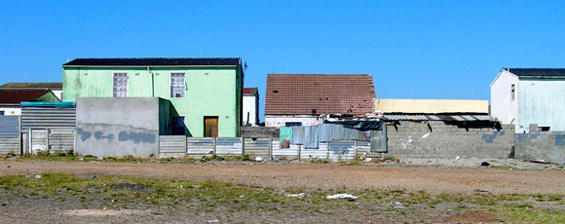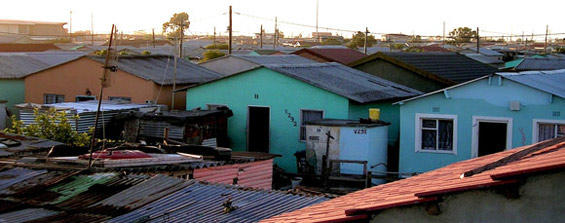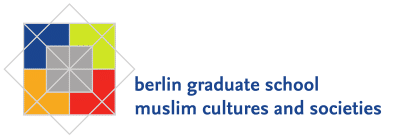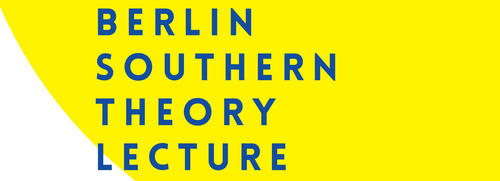DFG-Research Project “Masculinities and AIDS in Cape Town, South Africa”
“Masculinities and AIDS in Cape Town, South Africa”
Head of the research project:
Prof. Dr. Hansjörg Dilger
Research associate:
Hanspeter Reihling, M.A.
Funding institution: Deutsche Forschungsgemeinschaft (DFG); Wiss. Mitarbeiterstelle (halbe Stelle) 1.7.2007-30.6.2009; 1.3.2010 - 29.2.2012
Description
Background
Critical studies of men and masculinities
While gender studies in the social sciences and history have long concentrated on the views and practices of women, with the beginning of the 1990s a growing number of studies emerged that conceived men in relation to their position within historically and culturally constituted gender orders. Besides power differentials in relation to women, hierarchies among men and between different constructions of masculinity came under scrutiny.
Academics and activists started to call not only for the emancipation of women but also for men’s emancipation from oppressive social expectations of what it means to be a man. From this perspective men were increasingly viewed as “victims” of their socialization or enculturation, having their own interest in overcoming a noxious hegemonic masculinity that puts their health and well-being at risk.
Field I: Khayelitsha, Site B
Hypothesis
Times of change: masculinities and HIV/AIDS in Southern Africa
Many studies on Southern Africa have linked heterosexual men’s promiscuity and sexual violence to their enhanced risk to spread and contract HIV. From this perspective, the pervasiveness of the HIV/AIDS epidemic is an entry point for the transformation of hegemonic masculinities. On the one hand, this transformation is supposed to take place through externally driven public health technologies; on the other, the epidemic also generates an impetus for men to work on themselves as gendered subjects.
In how far HIV/AIDS really triggers new forms of masculinity and gendered modes of governmentality in urban South Africa is far from being clear. The impact of campaigns to change male sexual behaviour still seems to be limited. Potential health risks contrast with the lived experience of men and their everyday performance of masculinity in relation to religion, kinship, class, ethnicity, and skin colour.
Field II: The Southern Suburbs, Kenilworth
Objectives
Localizing men’s subjectitivites in the city
The research project “Urban Ethnography of Masculinities and AIDS in Cape Town” addresses how young heterosexual men aged 25 to 35 embody gendered subjectivities and health-related practices through action, localization and movement within and beyond three divergent neighbourhoods of Cape Town. It also asks in how far the lived geography of masculinities within the neighbourhoods, in between, and beyond them favours or averts the transmission and treatment of HIV/AIDS.
In this context, there are four main points of inquiry: a) the changing position of men within the family and their conceptualization of (ideal) gender relations; b) the practice of male sexuality according to group affiliation, including the selection of female partners and the use of violence; c) the illness experience of HIV positive men and the related search for care and treatment; and d) the role of NGOs in the transformation of masculinities including conflicts between divergent ideas of gender, sexuality and HIV/AIDS.
The results of the study are meant to make a contribution to the critical reflection and design of policies and programs that target men and masculinities in Cape Town.
Field III: Mitchell's Plain, Tafelsig
Methods
Multisite fieldwork among young men
The ethnographic study carries out multi-sited fieldwork in three culturally and socio-economically divergent neighbourhoods of Cape Town: the Southern Suburbs, Mitchell’s Plain, and Khayelitsha. The Extended Case-Study Method, Situational-, and Interface Analysis inform the qualitative approach of the study. Longitudinal research on gender perceptions and processes of change among three networks of young men selected through theoretical sampling is conducted between March 2007 and December 2008.
Methodological triangulation is achieved through complementing participant observation with focus group discussions and biographic interviews. In each of the three networks 20 individual interviews are conducted. The interview partners are selected through respondent-driven sampling. Furthermore, participant observation during NGO interventions is supplemented by interviews with experts and representatives from those organizations.
Ethics
The importance of accountability
The scale of the HIV/AIDS epidemic in South Africa and the ongoing social suffering caused by it call social and cultural anthropologists to join the struggle against the disease and its causes. The research project seeks to understand the dynamics of men’s social practice beyond narrowly defined sexual behaviour and violent conduct.
The study is not carried out with a pre-conceptualized intervention method for a biopolitics of HIV/AIDS at hand. It is rather grounded in the emic concerns of men which will be made accessible to local partner organizations. The free dissemination of research findings, i.e. through workshops, will provide a platform to reflect upon interventions and to envision future work with men.
The project team will ensure that the study does not harm the safety, dignity or privacy of the research participants of whom informed consent will be obtained. Every research subject is encouraged to quit his participation at any stage of the study without vindication. Finally, special attentiveness is given to the epistemological and political location of the ethnographer himself who is producing a socio-culturally situated, rather than a universal knowledge of the subject.
Links
Partner Institutions
University of Cape Town (UCT):
http://www.uct.ac.za/
African Gender Institute at UCT:
http://web.uct.ac.za/org/agi/
Sonke Gender Justice:
http://www.genderjustice.org.za
Treatment Action Campaign:
Other Resources
Fieldnote Updates from Cape Town:
http://www.transculturations.org
Centre for the Study of AIDS, University of Pretoria:
http://www.csa.za.org
Centre for Social Science Research, University of Cape Town:
Schlagwörter
- Ethnologie, FU Berlin, Südasien, Orissa, Naturkatastrophen, Medizinethnologie



